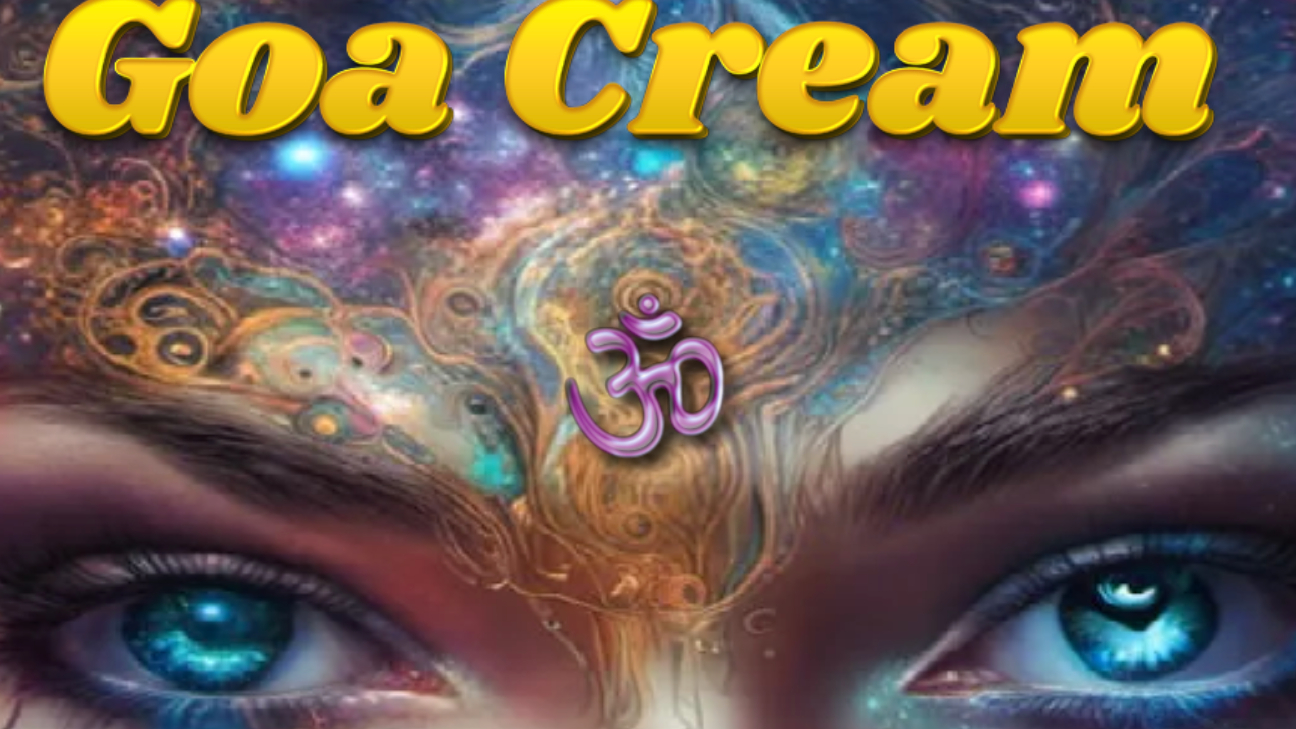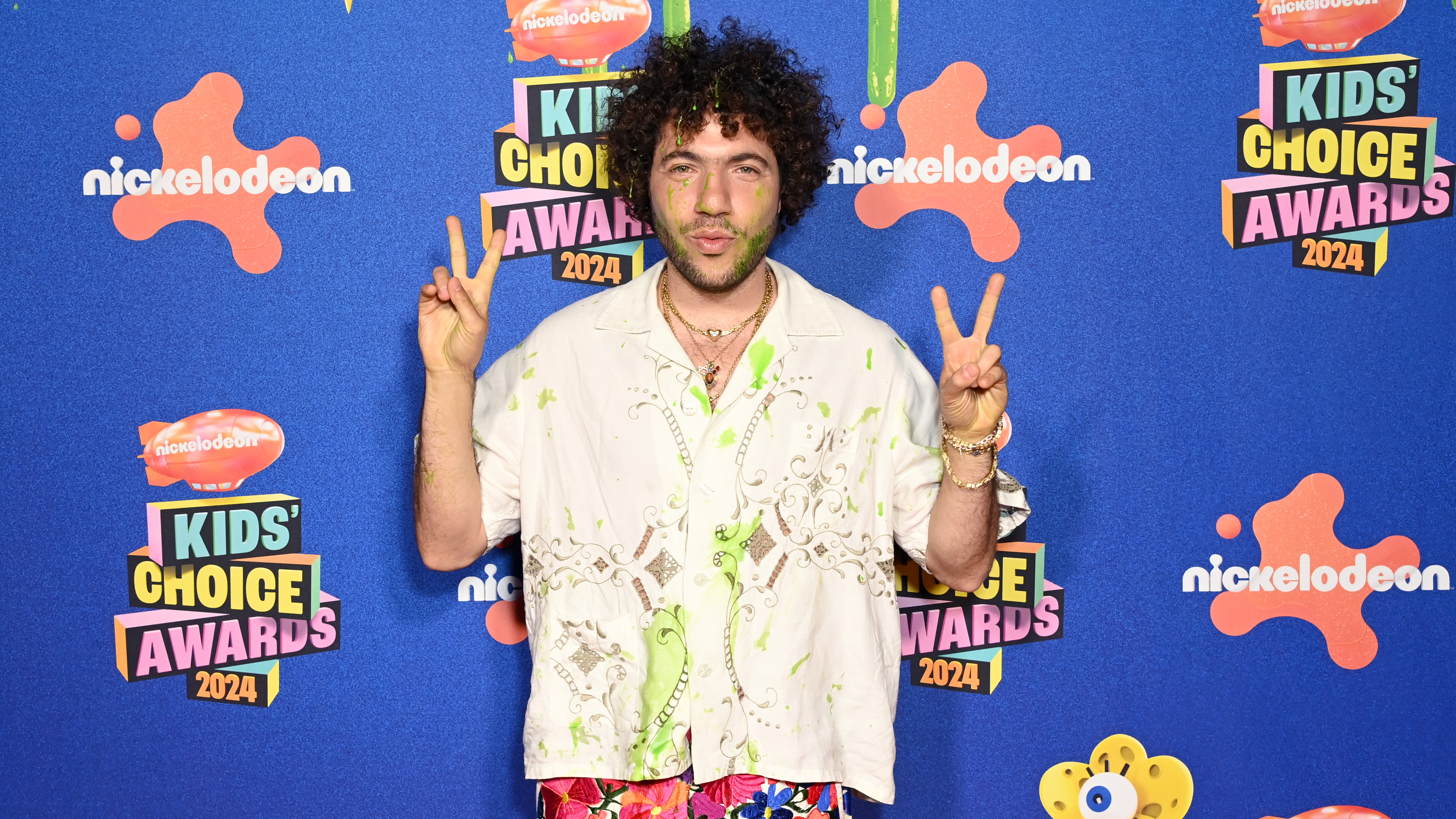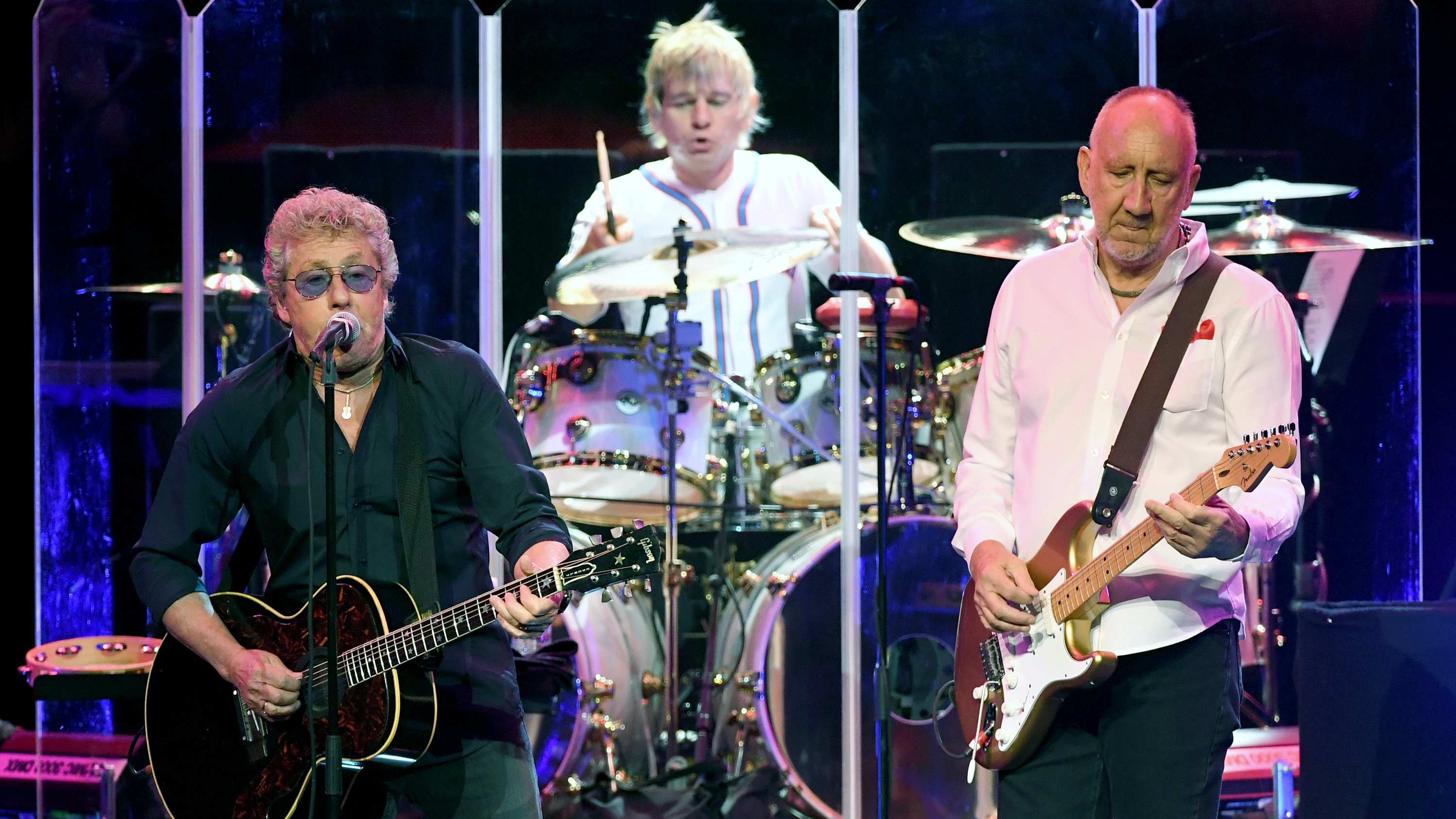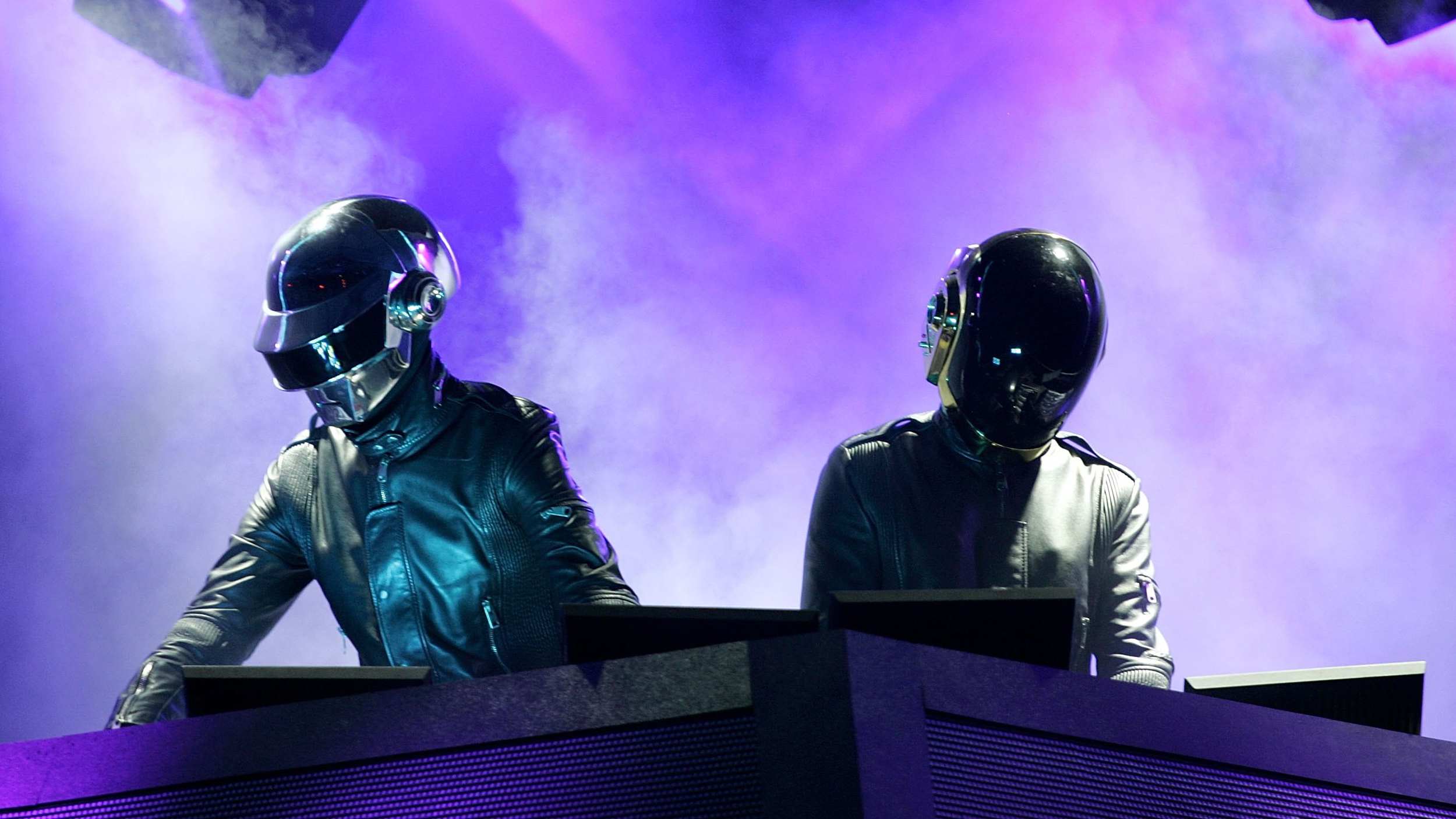Laurence Cottle: “30 years later, I still hear people saying, ‘I’ve never seen five strings on a bass before’”
On Clapton, side-gigs and being the man with Van
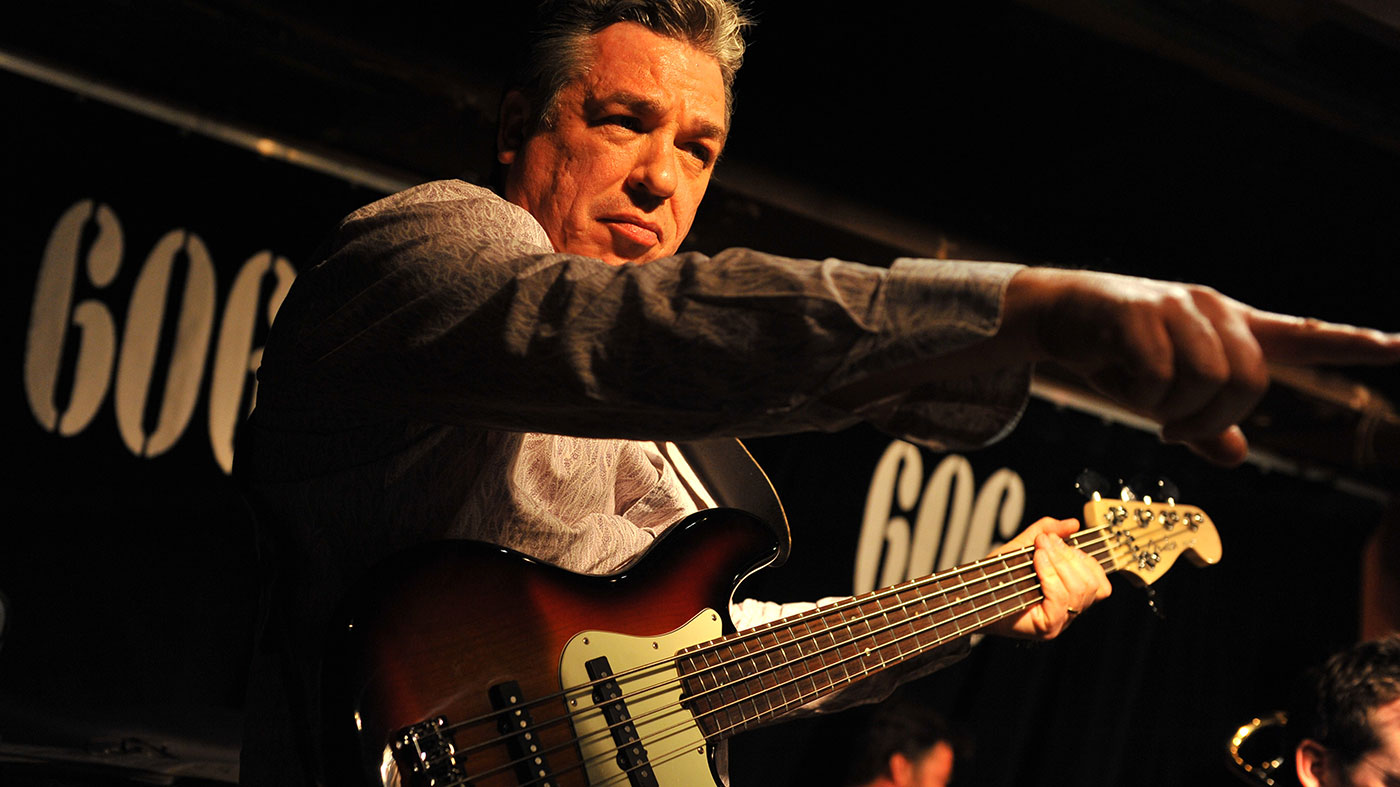
If you’re a bass player, lunches really don’t get better than a couple of hours spent with Laurence Cottle in a country pub, munching on a rather nice steak and discussing the pros and cons of life as a professional among the low frequencies.
Cottle, a relaxed fellow despite the several high-profile gigs he fulfils on a regular basis, has four decades of history alongside a huge number of musical heroes, including Black Sabbath, Seal, Brian Eno, Mike Oldfield and many more. He also has a massive discography of his own, so all we can hope to achieve by the time the coffees arrive is an update of what the great man is up to in 2018. Mind you, that’s still a whole lot of bass activity...
Laurence, last time we spoke you were recording with Gavin Harrison of Porcupine Tree, and arranging Jaco Pastorius material for your big band.
“They were both loads of fun. Gavin wanted to do Porcupine Tree in a big band format, which we did for his Cheating The Polygraph album in 2015. And my Portrait Of Jaco project tied in with Jaco’s 60th birthday - we did quite a few gigs and festivals with it.”
What are you currently up to?
My library music has been on Friends, The Fresh Prince Of Bel-Air, Spongebob Squarepants, all kinds of things!
“I’m a regular in the Pee Wee Ellis Funk Assembly; I’ve been in Pee Wee’s band for 10 years, off and on. He’s called the ‘architect of funk’ because he came up with the grooves that made James Brown’s band cook. I still pick up things from him, because he’s a bass player although he plays sax. He showed me the bass part for Cold Sweat and said ‘Play it like you mean it!’ I also play at Ronnie Scott’s with my own band, and tour with various artists.”
You also record library music, correct?
Get the MusicRadar Newsletter
Want all the hottest music and gear news, reviews, deals, features and more, direct to your inbox? Sign up here.
“That’s right. I was approached in the early 90s by KPM, a library company who record music on spec. You write a load of music and they then use it in different situations. My music has been on Friends, The Fresh Prince Of Bel-Air, Spongebob Squarepants, all kinds of things! I recorded hundreds of those tracks in the 90s.”
You’ve recently recorded with Van Morrison. How was that?
“Working with Van was great. It was all done live, with no charts or preparation - he’d just start playing and we’d join in without knowing what the arrangement was, let alone agreeing what key we were in. He didn’t like to do many takes; we usually only did one or two.”
What’s Van like?
“I got on with him very well, but if you’ve got a weakness, he’ll nail it. Fortunately that didn’t happen with me! He’s also got an encyclopaedic memory; he remembers every song he’s ever done, and who played on it. Jeff Beck was there too - he sat right next to me.”
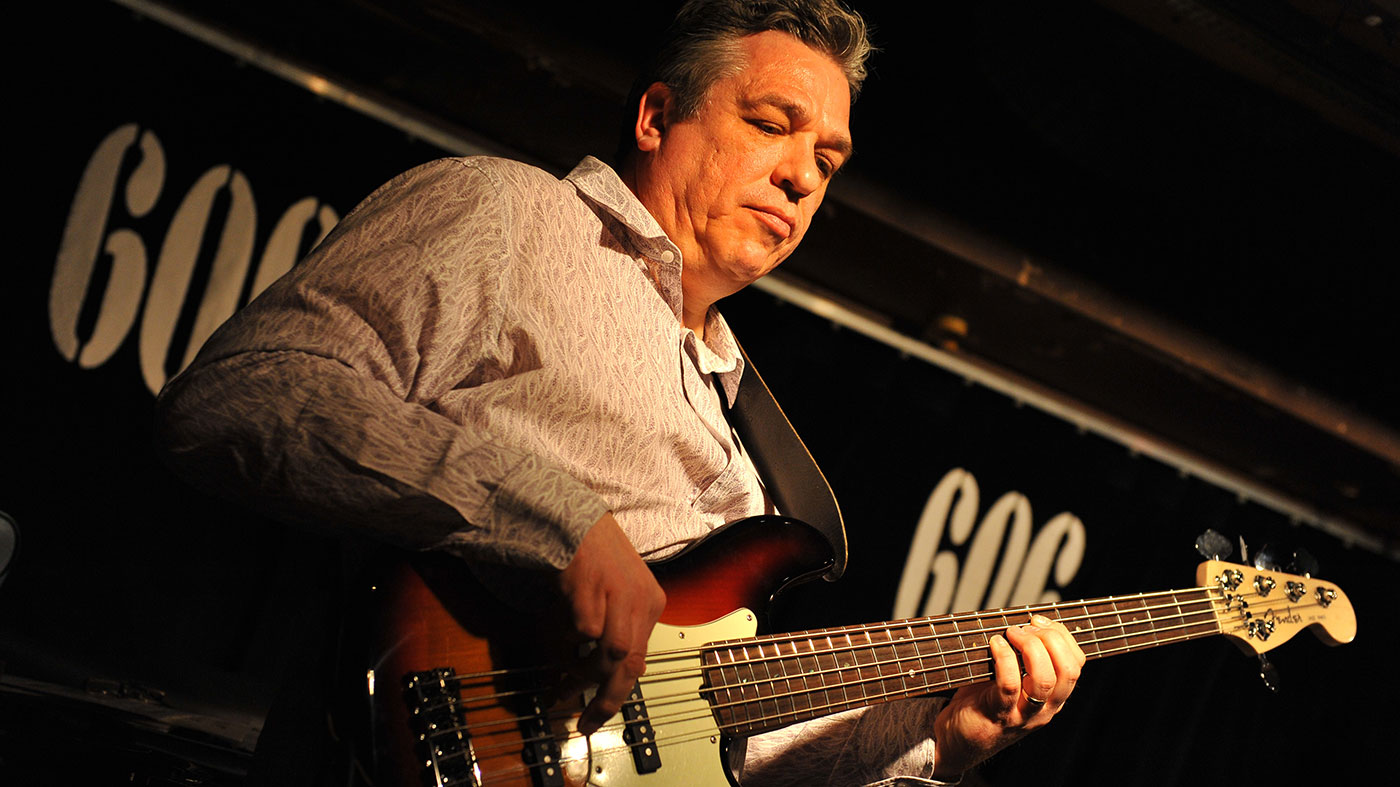
Putting in the hours
How have you managed your career?
“The most important thing for me is to keep playing and working on my musicianship. I’ve never had to look for work, although I’ve had to diversify a lot. When I came on the London scene in the mid-80s, there was no way you couldn’t work. There was loads of film sessions, loads of TV jingles - which were great fun, and you could do three a day - and also loads of gigs. I’d do sessions all day and then play a jazz gig in a pub that evening. I was playing with a Latin funk band called Paz, I was playing with Jim Mullen, three or four times a week. It was totally word of mouth.”
What happened then?
The social media business? I wouldn’t know where to start. I do think that side of things is essential for someone starting out now
“Eventually people started making music on their computers, so the sessions fell away and I started doing library music for films. That became a big part of my job, as well as arranging and writing for a variety of situations. I write for strings and brass, and I did some orchestral arrangements for the Royal Philharmonic Orchestra when they recorded crossover albums, such as Rush and prog-rock collections.”
Geddy Lee’s bass parts for orchestra must have been fun.
“Yes, that was challenging. I’m still doing all those things, as well as practising bass and working on my composing and arranging skills with my big band. My own music incorporates straightahead jazz fusion and funk. The last album I did with my own big band was a tribute to Tower Of Power. I’ve always been a huge fan, so it was a labour of love. They’ve been going for 50 years, so I thought I’d celebrate that anniversary.”
Would you recommend having management to young musicians?
“I’ve never had a manager or been represented. I have no idea how the business works these days, with YouTube channels and all the social media business. I wouldn’t know where to start. I do think that side of things is essential for someone starting out now, though. I’ll have a new website up and running very soon, where I’ll make my music, arrangements and charts available.”
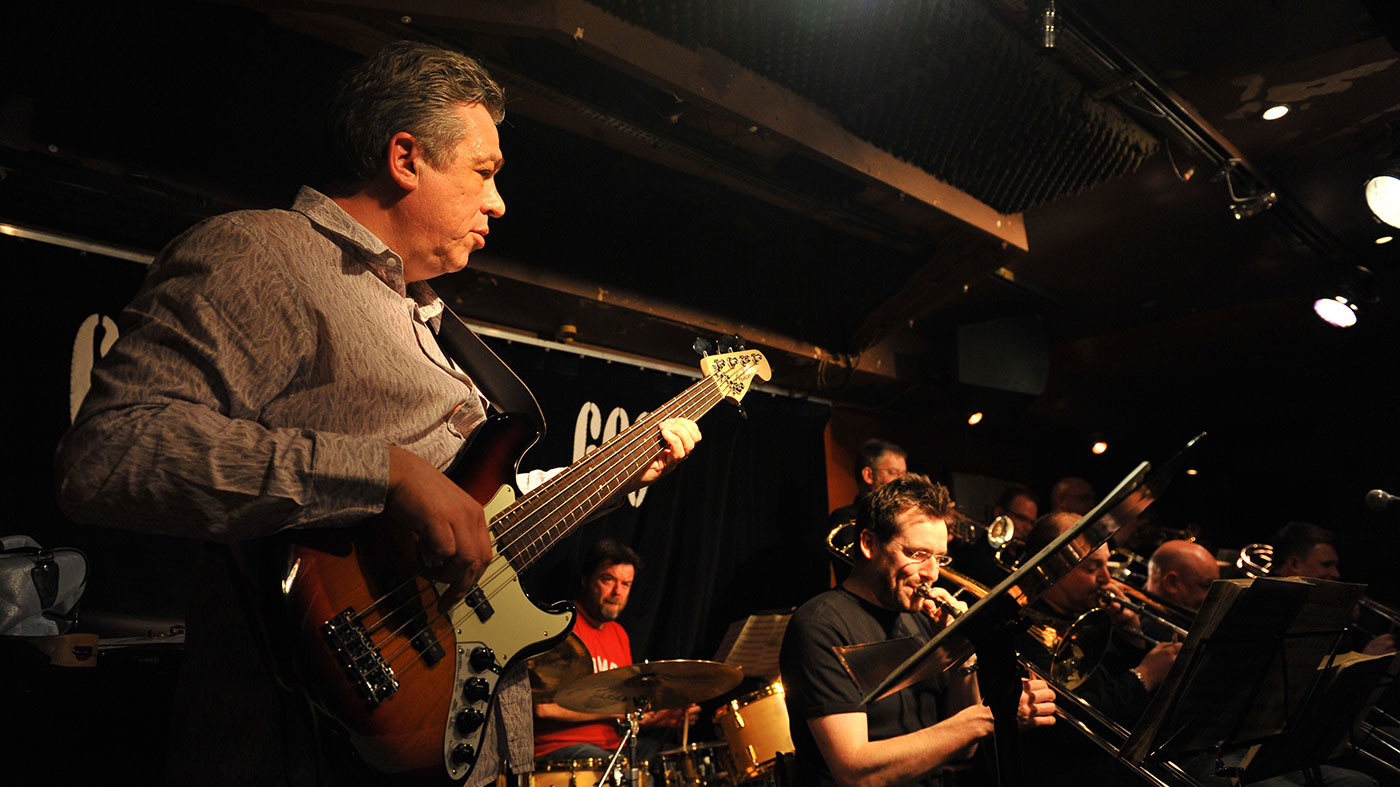
Lethal sessions
How did you get started on bass?
“I started playing trombone with my dad when I was 15. He had a trad jazz band, so we’d do summer seasons around south Wales and the Midlands. He changed the line-up to get more dance gigs, which is when I switched to bass.”
What was the first film music you recorded?
The first movie soundtrack I did was Lethal Weapon in 1987 with Eric Clapton
“The first movie soundtrack I did was Lethal Weapon in 1987 with Eric Clapton. The composer was the late Michael Kamen, who was great. He’d put up a clip that they needed music for and me, Eric and the drummer Henry Spinetti would find a groove and record it. It was pretty much just jamming.”
Do you also teach?
“When I’m not recording or touring, I teach at the Guildhall School of Music, where they’ve got some really gifted young players. Tons of amazing musicians come out of these academies every year.”
What one piece of wisdom should all bass players know?
“The most important thing is to have the passion. That’s the starting point. It’s what I had from the moment I heard My Generation by the Who. That was the first bass part that grabbed me, as well as songs by Stevie Wonder and Joni Mitchell and Boz Scaggs. Once I heard Jaco, I was completely hooked.”
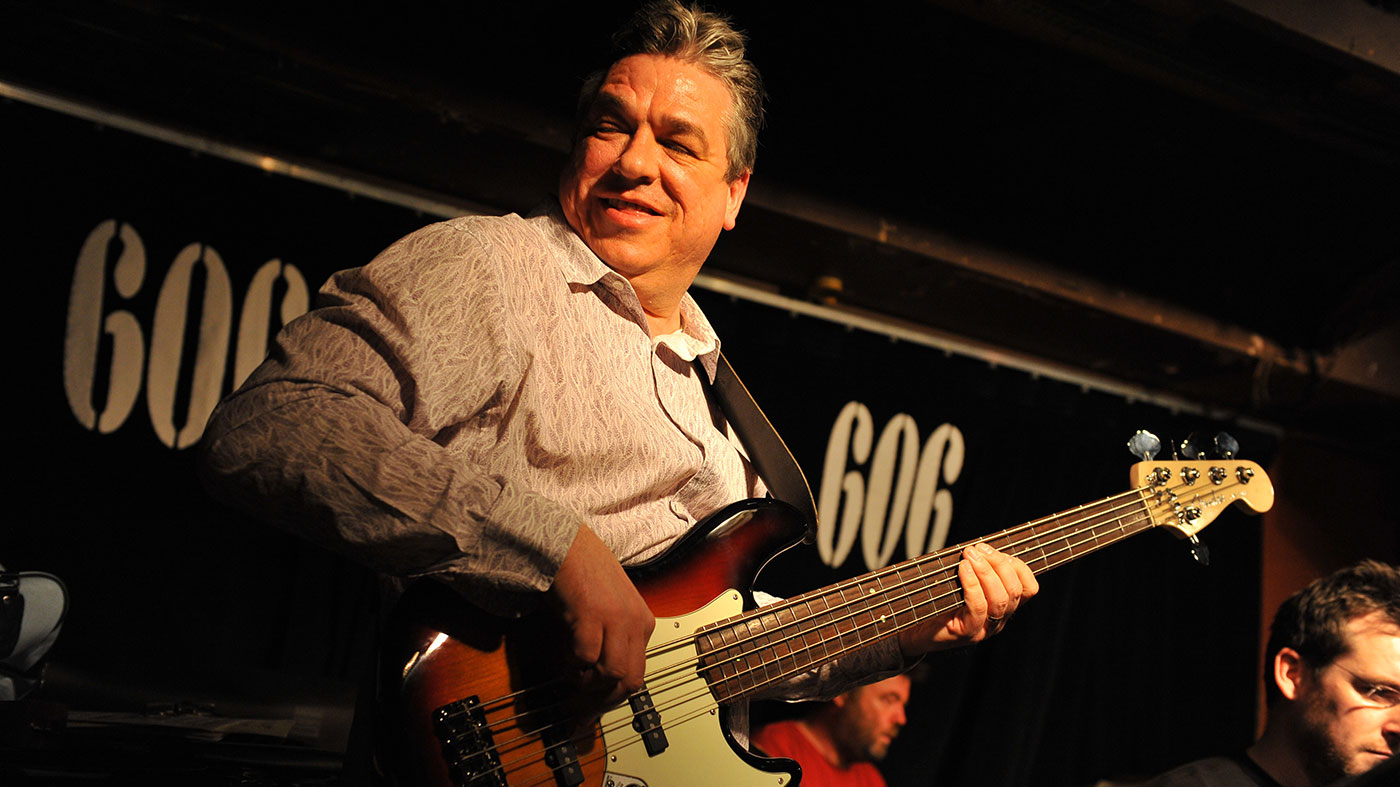
Go-to gear
What gear do you use?
“For live gigs, I’ve got one of Bernie Goodfellow’s GB Spitfires. It’s a five-string Jazz with active circuitry, which is great for various sounds, whether it’s an old Precision sound like the one Pee Wee Ellis likes, or something brighter. For sessions, I use my 1990s Yamaha TRB. I’ve only ever used Rotosound strings.”
You were an early adopter of five-strings.
It’s funny, 30 years later I still hear people saying ‘I’ve never seen five strings on a bass before’
“I was. I’ve been using fives since 1986, I think, when I played one on Eric Clapton’s song It’s In The Way That You Use It. I was living in the States, so I’d see guys like Jimmy Johnson and Anthony Jackson and Gary Willis. It’s funny, 30 years later I still hear people saying ‘I’ve never seen five strings on a bass before’.”
Do you take a backup bass to gigs?
“No, I only take one out. I’ve never broken a string, but the battery does run out sometimes. I did a gig with Ian Gillan and Don Airey in this massive place in Russia once, and in the middle of the first tune the battery went. I had to stop and get a screwdriver out, right there on stage. It was horrible.”
What else do you use?
“I’m with EBS, who are really helpful wherever I go; I have their lightweight Ragnar amp and I use all their pedals too. Their octaver, chorus, reverb and distortion are just beautiful.”
Are you still improving as a bass player?
“I hope so. I’m working harder than ever at it. I think I’ve improved in my dialogue with other musicians, although too much knowledge can get in the way. I try to say more with fewer notes these days, which is hard. On a jazz gig, it’s tempting to overplay, especially while soloing, because it’s fun!”





